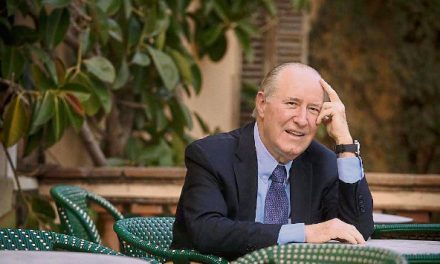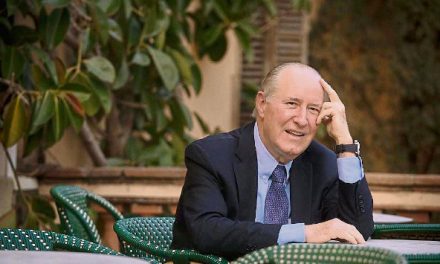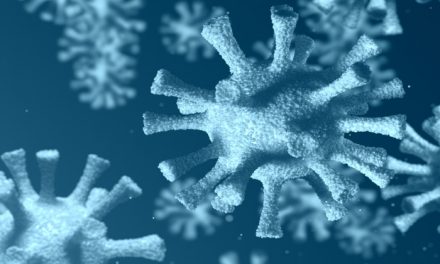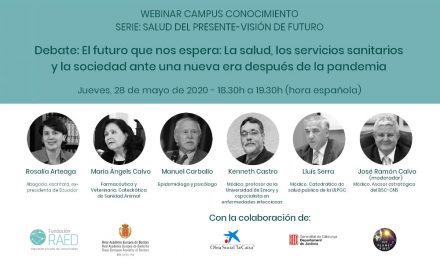Maria Àngels Calvo
Professor at the Veterinary Faculty of the Autonomous University of Barcelona; full academician of the Royal Academy of Medicine of Catalonia, the Royal Academy of Pharmacy of Catalonia, the Academy of Veterinary Sciences of Catalonia, the Royal Academy of Doctors of Spain and the Royal European Academy of Doctors-Barcelona 1914 (RAED)
Information published in eltaquigrafo.com (March 16, 2020)
“It’s not a vacation”. Maria Àngels Calvo, full academician of the Royal European Academy of Doctors (RAED) and doctor of pharmacy and veterinary medicine, has lamented, when asked by this media, attitudes that “demonstrate a total lack of civility” after knowing the state of confinement for the coronavirus crisis in Spain.
Just 24 hours ago, the state of alarm was decreed, designed to stop the spread of the coronavirus and prevent hospital collapse, and many citizens have already moved to their second homes, thus expanding possible cases of infection to areas that they were possibly exempt from SARS-CoV-2 (Covid-19).
The vice president of the RAED, an institution that ensures the dissemination of knowledge and is concerned with health and current affairs, believes that it’s time to prioritize collective sentiment and take “citizen awareness”, since it qualifies the academician, “your bad behavior can infect a population at risk”. For this reason, she considers essential to limit the movement of people, close establishments that aren’t of primary necessity and, above all, follow the hygiene instructions set by government and health institutions. In other words, “keep your hands clean and respect interpersonal distance”.
Calvo, who is also a specialist in microbiology and parasitology, insisted to eltaquigrafo.com about the importance of complying with the guidelines established by the Spanish Royal Decree that regulates the state of confinement because, according to the academician, the most important thing now is “avoid expansion, stop contagion and not collapse the health system, to regain control of the situation, “to which the specialist added” and learn “to live with it”.
The doctor in Pharmacy and Veterinary Medicine is clear that, as it happens every year with the flu, from now on we humans must learn to live with this new coronavirus. For this reason, she hopes that, after this world crisis -already called a pandemic by the World Health Organization-, we can learn the lesson and not repeat mistakes: “this new virus will continue to be with us, so we must work to minimize the risks and live with it”.
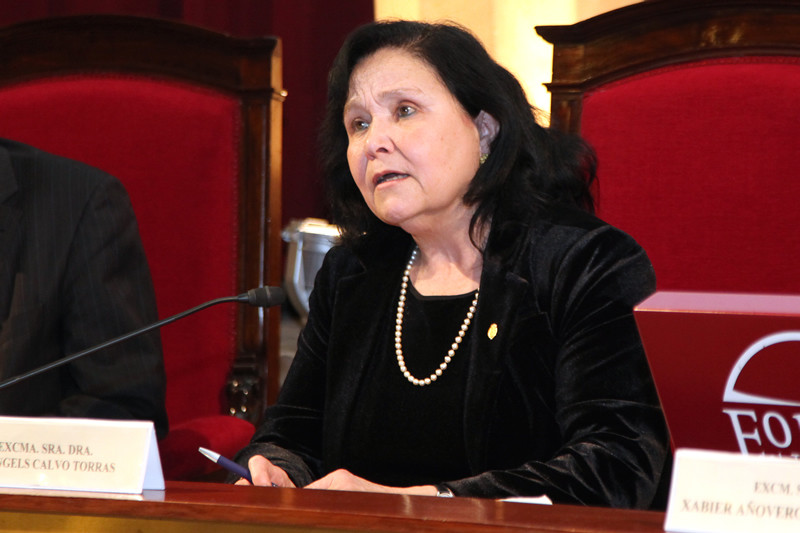
Dr. Maria Àngels Calvo
As she explained days ago in a knowledge conference organized by the Royal European Academy of Doctors in the Vichy Catalán spa (Caldes de Malavella, Girona), the route of transmission between humans is through the secretions of infected people, mainly by direct contact with respiratory drops, capable of being transmitted over distances of up to two meters. Hence, the importance of respecting interpersonal spaces. Another point sensitive to contagion is the hands contaminated with these secretions, followed by contact with the mucosa of the mouth, nose or eyes. Therefore, it’s insisted on maintaining good hand hygiene.
Calvo acknowledges that the uncertainty that exists around the new coronavirus is aggravating the situation. “We have been living with it for a short time and many ‘fake news’ have already appeared about how the virus is transmitted, about its infective capacity outside the body, treatment and cure”.
Regarding its survival outside the human body, according to studies that have analyzed other coronaviruses similar to the current one, human coronaviruses can remain active on inanimate surfaces for up to nine days, although their infestation capacity decreases considerably. Researchers continue to test their treatment, and healthcare providers treat it based on studies done in viruses from the same family. On the other hand, since the beginning of the appearance of the SARS-CoV-2 virus (Covid-19) in humans, many initiatives have been launched with the intention of developing, as quickly as possible, safe and effective vaccines, but they continue without be a reality.
“The consequences that this situation will bring cannot yet be assessed”, said the academician, aware that this state of exceptionality could have disastrous economic consequences. And, even hoping that this won’t happen or that it will be as mild as possible, Maria Àngels Calvo maintains that she hopes that we can learn from this situation to avoid repeating it. She trusts the measures decreed by the Government although, in spite of herself, they come late, since the situation has already collapsed. She hopes that, in the next few days, society will become aware of the seriousness of the situation and stop exposing itself to the virus.

